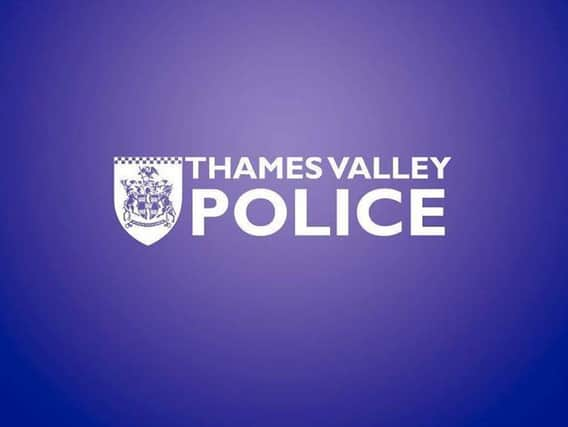Thames Valley Police more than 90 arrests as part of week-long 'county lines' drug dealing operation


The operation was part of a national week of action carried out by the National Crime Agency which focused on disrupting those who look to exploit communities by carrying out this sort of offence.
A number of warrants took place across Buckinghamshire, Berkshire and Oxfordshire as part of this week of action, which contributed to the force’s ongoing stronghold campaign to work in partnership to tackle serious organised crime and exploitation.
Advertisement
Hide AdAdvertisement
Hide AdIt's unclear how many warrants were served and arrests made in the Oxfordshire area of the policing region.
County lines drug dealing is the name given to drug dealing where organised crime groups (OCGs) use phone lines to move and supply drugs, usually from cities into smaller towns and rural areas.
This type of offending exploits children and vulnerable people who may have addiction or mental health issues.
Victims are often exploited by OCGs who use intimidation and violence in order to supply drugs to others.
Advertisement
Hide AdAdvertisement
Hide AdA number of activities have taken place across the force in order to safeguard vulnerable people and to bring to justice those responsible for county lines drugs dealing.
Alongside enforcement activity, this has included visiting previous victims of cuckooing, and working with partner agencies such as local authorities.
TVP officers have worked with schools in order to warn and inform pupils and teachers of the dangers of drugs and drug supply, and how criminal groups can look to exploit children.
During this week, the force launched a unique lesson plan package to Thames Valley schools providing them with activities and resources to teach secondary school children about the dangers of child drug exploitation.
Advertisement
Hide AdAdvertisement
Hide AdThe schools package uses a video of Dee, an ex-offender who was involved in child drug exploitation, talking about his experiences and the realities and impacts of these crimes.
There have also been knife arches at railway stations, along with dogs and high visibility patrols.
Additionally, during this week of action, Thames Valley Police has:
- Executed 20 warrants across the force area
- Arrested 91 people
- Seized about 573g of crack, heroin and cocaine
- Seized 27 weapons and 91 mobile phones
- Seized more than £50,000 in cash associated with drug dealing
- Visited 38 schools to engage with pupils
- Engaged with 72 vulnerable people
Advertisement
Hide AdAdvertisement
Hide AdA significant amount of intelligence has also been gathered which will help to inform the force’s continued work to combat county drugs lines in our communities.
Detective Chief Superintendent Richard List said: “This week of action has been really positive in terms of making arrests, protecting vulnerable people and seizing drugs, cash and weapons.
“We have worked with partners including local authorities, schools and charities, and have been able to educate people as to the dangers of drugs exploitation, and we have also gathered really useful intelligence which will help us continue to tackle county lines offenders going forward.
“Combatting county lines is something that Thames Valley Police focuses on every day, but this intensification week should demonstrate to the public our dedication to fight this type of offence.
Advertisement
Hide AdAdvertisement
Hide Ad“It should also serve as a message to offenders. We will not tolerate those who attempt to exploit our communities, and to bring to drugs into them.
“We know who you are, we will arrest you, stop your supply and seize your drugs and cash.
“It is important that the public helps us in our fight against serious organised crime by reporting drug dealing or anything else which is of concern to them. If you are worried that someone you know is being exploited by drug dealers, please report it. We can then take the necessary steps to safeguard them and identify those responsible.
“You can make a report by calling us on 101, or by contacting Crimestoppers anonymously on 0800 555 111.”